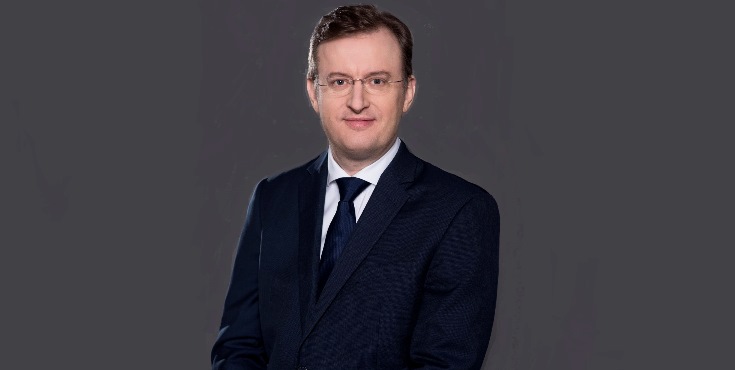Why aren’t there any Polish companies in Germany’s Schwedt refinery? „This is a good question,” Unimot President Adam Sikorski tells BiznesAlert.pl. Will there ever be? „I’m pessimistic,” he adds.
BiznesAlert.pl: Why Unimot doesn’t have green hydrogen in its strategy?
Adam Sikorski: There is no green hydrogen because we follow the experience of our colleagues from Switzerland and France. It would seem that Switzerland is an ideal location for green hydrogen production, as it is linked to hydroelectric power, yet business plans reveal this is not profitable. This business is heavily dependent on subsidies, that is, you need to apply for money to the European Union and get subsidies for a large capex. Our colleagues from the Swiss network SPAR have purchased 6 Hyundai trucks, adapted for carrying large loads. Unfortunately, economically speaking it doesn’t work, this does not work in practice. There are problems with refueling, technical problems, including such details that distributors do not have permits for measuring, so the issue of, among others, excise duty remains. I think the technology for this fuel is not here yet, so we have to wait for it to be able to produce green hydrogen. Of course, at a price that will be acceptable to customers. Because the longer I look at the Green Deal, the longer I look at the goals that follow from it, it seems to me that counting on the fact that everything will be based on subsidies so that green hydrogen is used, in the current economic situation of Europe, is simply not feasible.
So we are not saying good bye to fossil fuels just yet?
Absolutely not. I think the period of moving away from fossil fuels is going to shift because in reality we don’t have an alternative.
What does this mean in the context of Central and Eastern Europe and investments such as the Schwedt refinery?
The Schwedt refinery was said to be either the first or the last refinery in Germany to close. I fully agree with this and it could have been the first refinery if it were not for the Polish naftoport and the assistance that is provided by Poland. Without deliveries from Gdańsk and Kazakhstan, which are facilitated by Poland, this refinery would have ceased to operate long ago. If it wasn’t for that assistance, it would have to be closed. Looking again at the implementation of the Green Deal and at what is happening in the refineries in West Germany, where more entities are being closed, I think that Germany will do everything to keep the Schwedt refinery functioning for as long as possible, because no one in East Germany today, and especially in Brandenburg, can cause it to shut down. The closure of the power plant and mine in Bełchatów would have less social impact than what would have happened in Schwedt. In that political puzzle, especially with the position of Alternative fur Deutschland, it is impossible to do.
Why aren’t there any Polish companies in the refinery?
That’s a good question.
Will there ever be?
I am pessimistic about this.
How do sanctions against Russia affect your business and is it possible to plan anything in these conditions?
It’s hard to plan for the long term. In the short term, they have no direct impact. We have found alternative sources of supply, we work very well and have no logistical problems, so we are making the best of this opportunity. In the long run, they can have a big impact, not just on us. There is a group of companies that do not adhere as strictly to sanctions as Poland does. Within permissible actions, such as the price cap on Russian products, they achieve record-breaking billion-dollar financial results. I know their strategy, I meet with them, I see that they are investing in the oil sector, they are taking over refineries in Europe and not only, and soon they may come knocking. They will have a huge amount of money, and we do not have that amount of money today, as our results show. The results of Orlen are not spectacular either, and in the long run this is dangerous. The sanctions greatly strengthen those who „learned to get around” and operate in the markets in Turkey, Brazil, South Africa, Dubai or Singapore.
Does this mean that they do not import oil from Russia, but, for example, reprocess fuel?
They also import oil from Russia under the price cap and trade this oil all over the world.
What are your recommendations from the point of view of national and EU regulations?
It’s hard to do anything because it’s a difficult subject. In a way, this is a moral issue. I am not criticizing these solutions here, we just have to be aware that there are companies that are growing in this situation, that are making money, we have to say it clearly, they make a lot of money and have an apetite for investments. We will face this on the Polish market within the next 2-3 years.
Does this mean that these entities will make money on Russian oil?
And they will have money to invest.
Interview by Wojciech Jakóbik









